
The Chartist Convention 2 November 2019
180th Anniversary Year of the 1839 Rising
Newport Cathedral
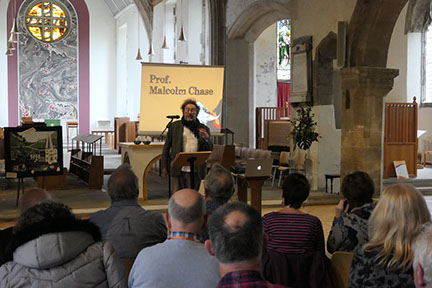
It was with great pleasure that we welcomed the return of our loyal friends and colleagues, Mrs. Shirley Chase and Professor Malcolm Chase, who had agreed the previous November to give his fourth lecture at Newport for “the 180th”. They arrived travelling by train from York via Ludlow to Hereford and then bus (substituted) through storms and flooding. Despite the tempestuous weather and challenging travel conditions of last November, Malcolm had set his mind on giving the Keynote lecture. He told his audience that soon after accepting our invitation, he had been diagnosed with a brain tumour, that required operation. He had set the date November 2nd as his return to academic lecturing.
As always, Malcolm gave us stunning and incisive analysis, on this occasion concerning Chartist Petitioning, which he defined as the raison d’etre of Chartism as a political movement, involving women and children, as well as men. Chartism operated as a family and community movement.
Sadly, this was to be Malcolm’s last visit to Newport. He died four months later, on February 29th 2020.
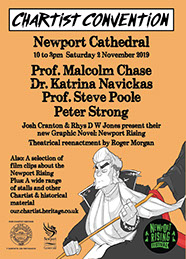 During 2021, CHARTISM eMAG will be taking a fresh look at Malcolm’s abundant writing, inviting readers who knew Malcolm and/or his work to share their stories and thoughts of his life and achievements. Malcolm Chase will not be forgotten.
During 2021, CHARTISM eMAG will be taking a fresh look at Malcolm’s abundant writing, inviting readers who knew Malcolm and/or his work to share their stories and thoughts of his life and achievements. Malcolm Chase will not be forgotten.
Item 2 in this edition is the Guardian’s obituary written by Professors Simon Hall and Rohan McWilliam (LINK to page)
*********
Professor Steve Poole, began the morning session and set the tone for our day’s deliberations by choosing Chartism and the Politics of Commemoration as his theme. Discussions on anniversaries of the Rising have been a regular theme at the annual Newport Chartist Convention over the years and have proved very popular with our audiences.
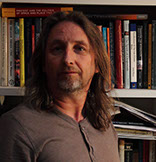 Steve Poole, who teaches at the University of the West of England, had earlier that Autumn, appeared in the highly popular BBC TV programme Who Do You Think You Are? (with Jack and Michael Whitehall) in the court room at Monmouth Shire Hall, where he explained the role of their ancestor Thomas Jones Philips in bringing John Frost and nearly thirty Chartists to trial at the Special Commission held January 1840.
Steve Poole, who teaches at the University of the West of England, had earlier that Autumn, appeared in the highly popular BBC TV programme Who Do You Think You Are? (with Jack and Michael Whitehall) in the court room at Monmouth Shire Hall, where he explained the role of their ancestor Thomas Jones Philips in bringing John Frost and nearly thirty Chartists to trial at the Special Commission held January 1840.
Professor Poole is particularly interested in crime, protest and the crowd in the counties of southern England in the eighteenth and nineteenth centuries and in his most recent publications, he has focused on how such events have or have not been commemorated.
Exploring the radical legacy inherited by the Chartists, Professor Poole traced various commemorative approaches from the 1790s onwards and provided us with some probing insights into perceptions of the 1839 Rising in south Wales. Appropriately, he pondered with us on Thomas Cooper’s The Purgatory of Suicides. In his notes accompanying this long poem, published 1845, Cooper wrote about the ‘killing of George Shell’ at Newport in 1839 and compared his death with that of John Hampden MP in a civil war battle in June 1643.
Hampden, who defied arbitrary royal taxation such as ‘ship money’ imposed by Charles I, was revered by the Chartists who demanded ‘votes for all men’, but also by the Whiggish owners of property and land, who applauded Hampden for upholding Parliamentary sovereignty. Pressed by Lords Nugent and Brougham, the Duke of Bedford had agreed erection in 1843 of a bicentennial monument at the Oxfordshire battle site where Hampden was mortally wounded.
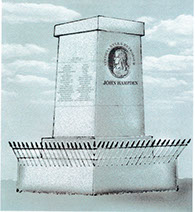 Muddling the events of the 1640s civil war with the ‘Glorious Revolution’ of the late 1680s, Nugent wrote the monument’s inscription: ‘Died while fighting in defence of the free monarchy and ancient liberties of England’ and ‘against the measures of an arbitrary court’.
Muddling the events of the 1640s civil war with the ‘Glorious Revolution’ of the late 1680s, Nugent wrote the monument’s inscription: ‘Died while fighting in defence of the free monarchy and ancient liberties of England’ and ‘against the measures of an arbitrary court’.
Prof. Poole emphasized that although Cooper was a vocal opponent of ‘physical force’, he “was struck by the hypocrisy of those who would erect monuments to John Hampden, while consigning to transportation the Chartists who took part in the 1839 Rising”.
Thomas Cooper wrote that Shell “loaded and fired his pieces three times with the greatest intrepidity, before he fell in the streets of Newport. We do not write history like the Greeks, or the memory of such a hero would not be lost! - Let me remember that a Nugent – to whom all honour! - has had the moral courage to exert himself, and successfully, for the erection of a column on Chalgrove Field, at the bicentenary of Hampden’s death.
May not a noble be found in November 2039 to commemorate Shell’s fall at Newport with equal earnestness?”
Cooper provided food for thought - the Convention pondered with our speaker on how we might remember Shell and his compatriots in twenty years’ time.
Following Malcolm Chase’s lecture, during the remainder of the morning session, Josh Cranton and Rhys Jones gave us an interesting presentation on their new graphic novel, Newport Rising,

while Roger Morgan entertained everyone in attendance with his dramatic portrayal of medical approaches at the time of the Newport Rising. He informed us that Joseph Lister was able to remove a leg in just 48 seconds, but that patient survival rates only averaged 30%! This disturbing thought was supplemented with a wonderful array of artefacts and historical props. Thankfully his talk was not sufficiently graphic to upset those with their minds on lunch!
The afternoon session
The afternoon session began a tribute from Jane Bryant MS to the late, and much-regarded, Newport MP, Paul Flynn who hardly missed the convention since it began.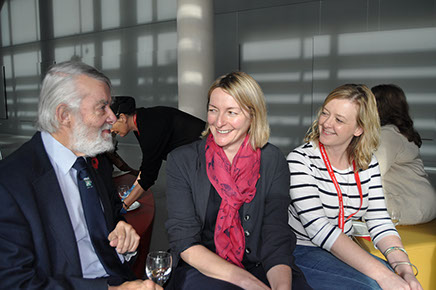
Paul Flynn MP with Jess Morden MP and Jayne Bryant MS in 2014
We were all so pleased that Dr Katrina Navickas had accepted our invitation to speak at our Chartist Convention again this year. Katrina, who is currently Reader in History at the University of Hertfordshire, first spoke to us on Protest and the Politics of Space when the Convention was held in John Frost School in 2016.
To commemorate the 200th anniversary of the Peterloo Massacre, Katrina spoke about the defining events at St. Peter’s Field, Manchester and its aftermath. We were so grateful for her expertise in this field, as she had recently been part of the historical advisory team for Mike Leigh’s film production, Peterloo.
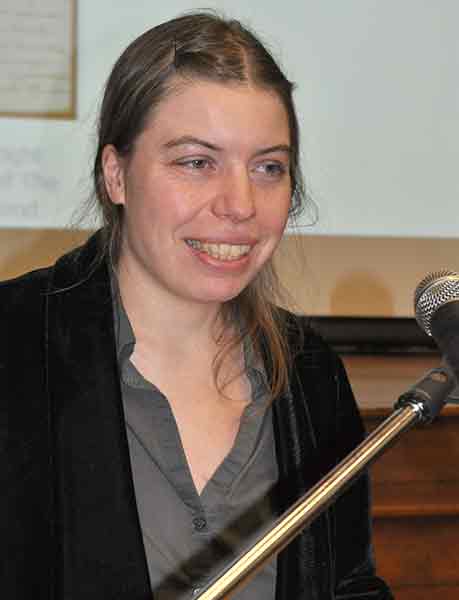 Katrina emphasised how the social and political impact of Peterloo established precedents for the Chartists a generation later. She drew particular attention to radical ideals, the role of the State, and repression, before outlining various aspects of commemoration since 1819. Illustrating the ways in which these causes have been remembered, particularly in the twentieth century, she provided examples from the region she knows best - Manchester and industrial Lancashire.
Katrina emphasised how the social and political impact of Peterloo established precedents for the Chartists a generation later. She drew particular attention to radical ideals, the role of the State, and repression, before outlining various aspects of commemoration since 1819. Illustrating the ways in which these causes have been remembered, particularly in the twentieth century, she provided examples from the region she knows best - Manchester and industrial Lancashire.
The Convention ended with an absorbing talk by Peter Strong. Peter’s theme was Sixty Years of the Rape of the Fair Country. By using contemporary accounts, many of them in newspaper reports, he was able to chart the ways in which this pioneering novel was first received in 1959, as well as in subsequent years. For an audience in 2019, it was fascinating to hear what newspapers such as the South Wales Argus, the Daily Mirror, and the Western Mail said about Cordell’s story of industrial life in the valleys of Monmouthshire during the 1830s. The Western Mail, for example, reviewed the book as something that would cause a stir with its ‘frank sexuality’.
Peter used his PowerPoint presentation effectively to illustrate these points, making references to other novels and films of the era, together with the suggestion that a film version of The Rape of the Fair Country had been planned in 1968, with the intension of using Stanley Baker alongside Mary Hopkin in the main roles.
This was a highly enjoyable way to close the 2019 Convention. The organising committee would like to thank everyone who was involved in making this day such a success.
Ray Stroud and Les James, on behalf of the organising committee









